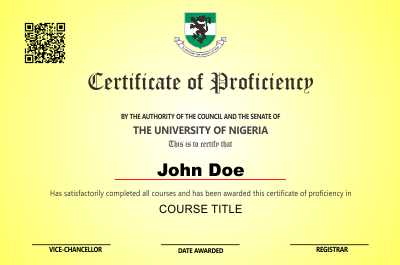Fundamentals of Bioenergy
HomeCoursesFundamentals of Bioenergy
About this Course
Bioenergy is renewable energy derived from recently living biological material, or biomass. Fossil carbon sources of energy, such as coal and petroleum, are not sources of bioenergy since these materials are the result of geological processes that transformed plants living many thousands of years ago. It is a form of renewable energybecause the energy contained in biomass is energy from the sun captured through natural processes of photosynthesis, and so long as the quantity of biomass used is equal to or less than the amount that can be regrown it is potentially renewable indefinitely. Bioenergy includes power and fuels derived from biomass.
Biopower, for example, is electricity generated from combustion of biomass. Heat and steam, or a combination of both, may also be produced through combustion of biomass, and may be produced in co-generation with electricity.
Biofuel is commonly used to refer to biomass-derived liquid fuels and gases most typically used in transportation.
Motivations and drivers of bioenergy development, including Government interest in energy security and energy independence, federal and state policies, government funded programs, and opportunities for regional economic development are detailed.
This course provides background information on bioenergy, its development, uses and economic, social and ecological impacts, as well as introduction to key concepts, science and policy related to biomass supply. A primary goal of this module is to improve the understanding of why bioenergy development is being promoted, and what are the potential benefits and challenges of bioenergy. Additionally, this module is intended to enhance the breadth and depth of student’s vocabulary related to renewable energy and sustainability.
Learning Outcomes & Objectives:
- Provide current international background information regarding energy consumption and production statistics.
- Describe policy which has led to increased interest in bioenergy sources and uses.
- Lead discussions of bioenergy development, addressing opportunities and concerns.
- Provide overview of the bioenergy process, products, feedstock requirements, and address concerns about sustainability.
- Lead discussions of potential trade-offs related to the development of bioenergy sources.
- Help local decision-makers find relevant and accurate information as they consider options and develop projects.
- Provide information regarding regional and global impacts of bioenergy development and concerns about sustainability.
| Course Code | UNN/OC/0056 | |
| Course Start Date | Started | |
| Course Duration | 3 Months | |
| Dedication | 2 hours per week | |
| Number of Modules | 10 | |
| Level | Basic | |
| School offering course | UNN Online School of Oil and Gas | |
| Language | English | |
| Video/Audio Media | None | |
| ₦ | Course Fee | 350000.00 |
Certificate of Proficiency

A Certificate of Proficiency is awarded to you at successful completion of courses designed to prepare you for a new career or enhance your skill set. This empowers you to be more productive and marketable in today's global market.
Associated Programs
Pages: 1
UNN Online Program
Bioenergy Production Operations (Biogas, Biofuel and Biodiesel)
In this program, you will learn all about Bioenergy which comprises of Biogas, Biodiesel and Biofuel. Bioenergy is energy derived from Biomass; an organic based energy source supplying the worlds energy needs.
Program Courses: 10
Course Prerequisites / Requirements
Graduates of Universities are eligible to register for Post Graduate Diploma programs, and complete/pass all the modules. NCE and HND holders with a minimum of 3 years working experience, especially in the petroleum industry will be considered. WAEC holders or equivalent, can enroll and do as many individual modules as they wish.


